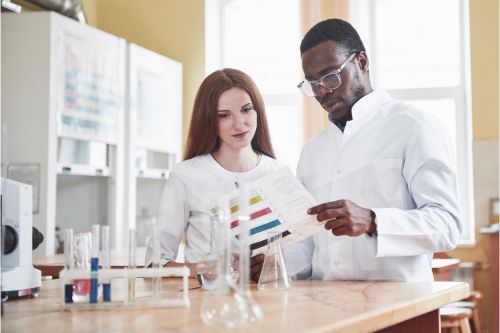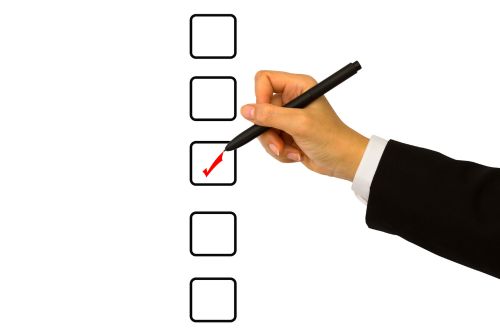Table of Contents
About the oenology course
Oenology is the study of wine and distilled wine. It entails researching the transformation of grapes into wine and studying various grape varieties. Oenology courses prepare professionals and researchers for a career in winemaking by studying vine physiology, health, wine sensory science, supply chain, and production. The global wine market will grow to a revised size of US$434.6 billion by 2027, as per the Global Wine Market Report of 2022. With a growing wine market, there is a growth in demand for oenologists. So, here is everything you need to know about oenology certification, universities, and more.
In this blog, we will discuss oenology course for you to gain expertise in all aspects of winemaking and become a wine expert.
What does oenology mean?
The science and study of all aspects of wine and winemaking, excluding vine-growing and grape-harvesting, is oenology or enology. Training programs and research facilities that cover both the ‘outdoors’ and ‘indoors’ refer to these aspects of winemaking as ‘viticulture and enology’ in this context. Viticulture is for outdoor aspects of wine, such as vine-growing, and oenology deals with indoor aspects, such as wine-making and so on.
Oenologist | Top courses

Here are some excellent courses to take into consideration if you want to become an oenologist.
- Bachelor of Viticulture and Oenology (BSc Hons)
- Master of Viticulture and Oenology (MSc)
- Master in Fermented Beverages
- Master Course in Italian Cuisine and Oenology
- Graduate Diploma in Viticulture and Oenology
- Master in Innovative Oenology
- Master of Food and Wine Journalism
- Master in Wine Culture and Communication
What does an oenologist do?
A person specializing in wine science is an oenologist, a term accepted in France since 1955. While an oenologist can be a technician or a chemist, they are most famous for being expert wine tasters who oversee the various stages of wine production from the vine to the table. As a result, these skilled professionals oversee the winemaking procedure, distillation, blending, and bottling.
Since Oenologists are in charge of determining the wine’s quality, they need to have a scientific understanding of the chemical and biological processes involved in winemaking. An oenologist has to continuously develop their nose, palate, and memory sense to be the best at tasting wine. However, there should not be any confusion between a sommelier and an oenologist because the latter speaks about wine, gives clients advice, and specializes in wine service and selection, while the former supervises wine production and counsels winegrowers.
Eligibility

The following are the standard prerequisites for oenology courses, though eligibility varies by course and by the university
- For undergraduate studies, an aggregate percentage of 65 to 75 percent in XII or 10+2 scores is the requirement.
- An upper second-class degree with a CGPA of 6.0/10.0 (60 percent) or a lower second-class degree with a CGPA of 5.5/10.0 (55 percent) can also be helpful for getting admission. One of the subjects covered should be science, along with math and English.
- Relevant Bachelor’s degree or equivalent in a science-related field, such as engineering, agriculture, biology, microbiology, chemistry, biochemistry, or plant science (For PG courses).
- For this course, you must also complete the WSET Level 2 Award in Wines with a passing grade or better. At the beginning of their degree, applicants often have to take a quick, intensive bridge course that covers the principles of winemaking and vine-growing.
English language requirements
You must pass an English language test to prove your proficiency in the language in order to enroll in oenology courses abroad. Students should familiarize themselves with the university schedule and submit their applications for admission with care because the scorecard for these exams is valid for two years.
Language qualifying tests with required scores
- IELTS- 6.0 or above
- TOEFL- 79 or above
- PTE- 58 or above
Documents required for admission
- All official academic transcripts and grade cards
- Passport size photographs
- Passport photocopy
- Student visa
- Updated CV/Resume
- Portfolio (if asked or required)
- English language proficiency test scores
- Letter of recommendations
- Statement of purpose
Best universities to study oenology
Being aware of the top colleges and universities that offer oenology programs can help you in finding universities. Following are the top universities and colleges that provide oenology programs.
| University | QS Rankings 2023 |
| Charles Sturt University | #801-1000 |
| Lincoln University | #368 |
| Washington State University | #443 |
| The University of Adelaide (UoA) | #109 |
| Kent State University | #1001-1200 |
| California State University, Fresno | #250 |
| Melbourne Polytechnic | #33 |
| MiraCosta College | #980 |
Job opportunities in oenology
After graduation, you’ll be able to run a winery, manage a vineyard, oversee and carry out vineyard activities, and run winemaking processes. As a trained viticulturist and oenologist, you’ll be able to direct and develop winemaking and vine-growing or grape harvesting techniques in industries like winemaking and viticulture.
Fields you can find a job in after completing an oenology course-
- Viticultural management
- Winemaking and winery management
- Food and beverage technology
- Hospitality and tourism
Key takeaways
- Oenology or enology is the science of all aspects of wine and winemaking, excluding vine-growing and grape-harvesting. ‘Viticulture and enology’ comprises training programs and research facilities that cover both the ‘outdoors’ and ‘indoor’ aspects of winemaking.
- A person who demonstrates knowledge of wine science is an oenologist. An oenologist can be a technician or a chemist. These professionals are most famous for being expert wine tasters who supervise the various stages of wine production from the vine to the table.
- After completing an oenology course, you can run a winery, manage a vineyard, oversee and carry out vineyard activities, and run winemaking processes. As a trained viticulturist and oenologist, you can manage and develop winemaking and viticultural techniques winemaking and viticulture industries.
Did you find this blog about the oenology course helpful? If so, please share your thoughts in the comments. You can contact us by clicking here for more information on international universities and courses. We would be happy to assist you with your queries.
Liked this blog? Read next: Your guide to choosing a major at Marymount California University
FAQs
Q1. Who is the father of modern oenology?
Ans- The forefather of modern oenology is Émile Peynaud. He was a French oenologist and researcher. He revolutionized winemaking in the second half of the 20th century.
Q2. Who is the best oenologist in the world?
Ans- The Women’s Wine & Spirits Award 2022 in Hong Kong recognized Mara Vargas as the top oenologist in the world.
Q3. What is the difference between an oenologist and a winemaker?
Ans- Winemaker is an artist who conceptualizes and creates wine. An oenologist typically works in the wine industry, in proximity to the winery that makes the wine and the grape growers. An oenologist’s work also deals with wine packaging, wine sensory science, research, and so on.






